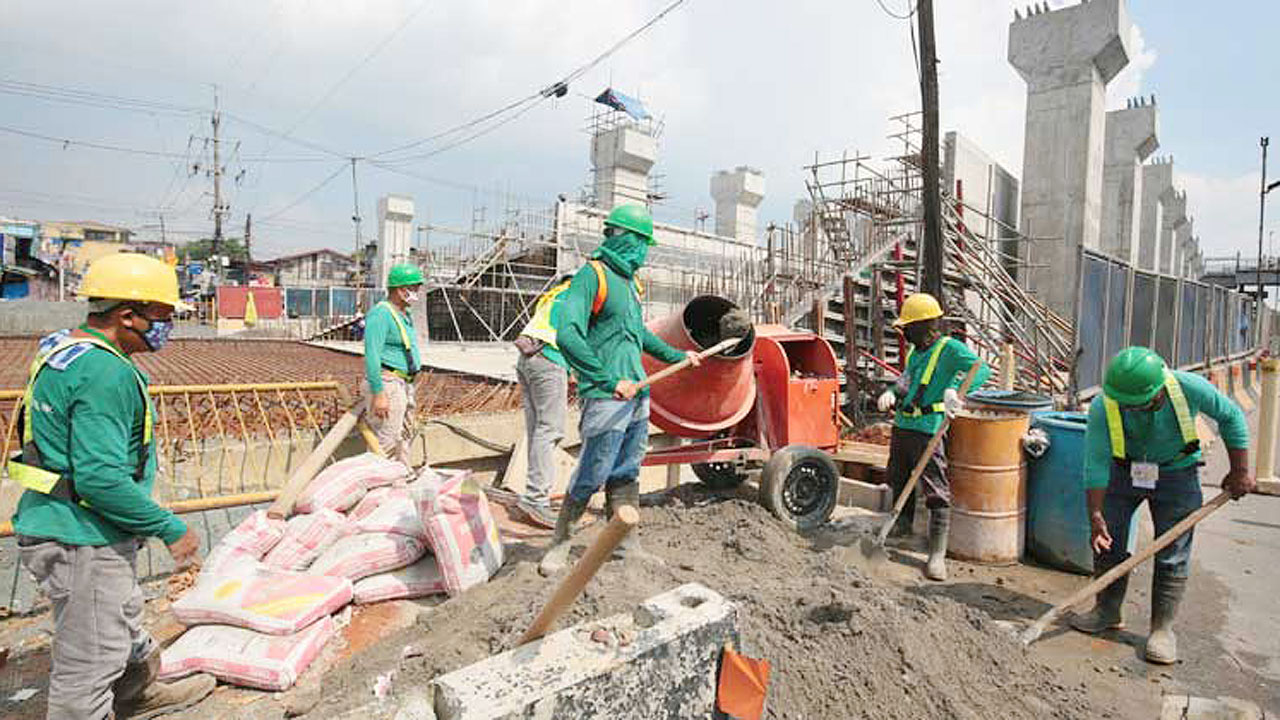
Upgrade to High-Speed Internet for only ₱1499/month!
Enjoy up to 100 Mbps fiber broadband, perfect for browsing, streaming, and gaming.
Visit Suniway.ph to learn
 Workers are seen mixing cement at a construction site in Quezon City, May 19, 2020. — PHILIPPINE STAR/ MICHAEL VARCAS
Workers are seen mixing cement at a construction site in Quezon City, May 19, 2020. — PHILIPPINE STAR/ MICHAEL VARCAS
By Chloe Mari A. Hufana, Reporter
THE newly signed Republic Act No. 12289, or the Accelerated and Reformed Right-of-Way (ARROW) Act, can help the Philippines achieve its goal of becoming an upper middle-income country, analysts said.
“This supports the country’s push toward UMIC (upper middle-income country) status by improving connectivity, efficiency, and investor confidence,” Philippine Institute for Development Studies Senior Research Fellow John Paolo R. Rivera said via Viber.
“However, strong implementation, fair compensation, and coordination with LGUs remain essential for its success,” he noted.
He noted that the new measure is long overdue and will significantly improve the rollout of infrastructure projects.
“By streamlining land acquisition, it minimizes costly delays and accelerates project completion that is critical for boosting productivity and attracting investment,” he added.
President Ferdinand R. Marcos, Jr. signed the ARROW Act on Sept. 12, Palace Press Officer Clarissa A. Castro told BusinessWorld via Viber.
Public Works Secretary Vivencio B. Dizon also confirmed the signing in a separate Viber message late Wednesday.
Malacañang has yet to release a full copy of the law, which amends Republic Act No. 10752, or the Right-of-Way Act, extending its coverage to all infrastructure projects carried out under public-private partnerships.
Nigel Paul C. Villarete, senior adviser on public-private partnerships at technical advisory group Libra Konsult, Inc., said that while private property rights are protected in a democracy, they must sometimes yield to the greater good.
He said via Viber that individual ownership cannot extend indefinitely, especially when it impedes community or national interests.
He said the law makes it easier for the government to pursue its infrastructure program.
The measure extends to private companies providing public services the power of eminent domain — including companies in electricity, petroleum, water pipelines, ports, telecommunications, and irrigation.
It also updates the law governing government access or expropriation of land for infrastructure by clarifying the rules on underground right-of-way.
The scope of the new law covers roads, bridges, power and water pipelines, telecommunications facilities, airports, seaports, and irrigation projects, among others.
Agencies will be required to prepare a Right-of-Way Action Plan before acquiring property, which must include a census of affected persons, an inventory of assets, compensation estimates, an implementation timeline, and records of consultations.
Property valuation will follow the market schedules set under the Real Property Valuation and Assessment Reform Act, ensuring fair compensation for land, structures, crops, and other affected assets.




